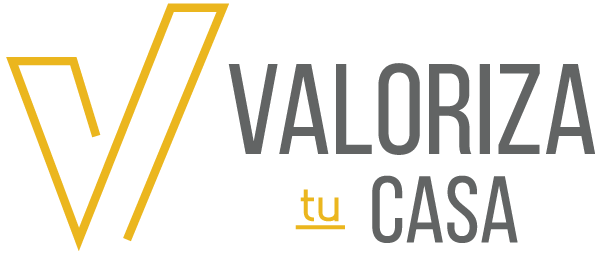Content
In the middle of a party where it seems like everyone is having fun and that alcohol and drugs are part of that fun, your reasons for staying sober can sometimes seem to just fade away. Recovery, if about anything, is about connecting with other people. Addiction slowly robs you of your relationships, as you become emotionally obsessed with your drug of choice. With recovery comes a blossoming of human connection, interaction, meaning, and hope.
Creating an individualized recovery plan is crucial for managing triggers effectively during significant events such as holidays, birthdays, or social gatherings. This plan should include identifying personal triggers—both internal and external—and outlining specific coping strategies tailored to these triggers. It is advisable to prepare a list of high-risk situations, such as environments where substances are present, and develop clear boundaries to avoid them.
- As turkey dinners and holiday jingles fill the air, it’s not all candy canes and jolly treats for folks in recovery.
- Many have trouble just being around alcohol, not to mention the unchecked inebriation that can occur at these parties.
- Practicing meditation regularly can decrease emotional reactivity, reduce stress, and improve overall emotional regulation, which is vital for handling triggers.
- Knowing what you’re up against can help keep you on track this festive time.
- High-stress life circumstances, such as job loss, relationship conflicts, or significant life changes, can also elevate stress levels and trigger cravings.
- Take some time this holiday season to print out our holiday and recovery worksheet to help you create your plan to stay on your recovery path this season.
How to manage triggers during important events in recovery
You’ve fought to break free from addiction, reclaiming your autonomy and health. Research shows reframing holiday stress as an opportunity to practice freedom helps strengthen recovery. The Recovery Village Columbus offers comprehensive addiction treatment for drug and alcohol addictions and co-occurring mental health conditions. Whether you are struggling with addiction, mental health or both, our expert team is here to guide you every step of the way. Don’t wait— reach out today to take the first step toward taking control of your life.
- Being prepared for the holiday events this month can bolster your sense of self-efficacy during the recovery process and help you begin the process of re-learning to trust yourself.
- In addition to the issue of freely available alcohol, many find resentments, conflicts, hostility, guilt, and triggers lurking just below the superficial holiday cheer.
- It operates confidentially in both English and Spanish, providing referrals without asking for personal details.
- Having a predefined exit plan, like knowing when and how to leave if feeling overwhelmed, ensures you retain control.
- The first obstacle that often comes up is the holiday office party.
How CBT Helps Individuals Develop Positive Coping Strategies
As you explore resentments, shame, or guilt you can break down the barriers to forgive others and yourself. You need to investigate and challenge the internal monologue about what you are owed and what you are lacking—some of which might be a carryover from addiction. Then you can break down those defensive walls and forgive other people, and you can approach the holiday season with a stronger sense of gratitude. The holidays may bring different challenges, depending on where you are in your addiction recovery journey. Fortunately, these strategies can help you stay focused on recovery and avoid triggering situations.
Understanding the Long-Term Effects of Substance Abuse on the Body
Think of this as prepping the mind before stepping into the holiday frenzy. A bit of «me time» with activities like meditation, deep breathing, or even some chill yoga can be game-changers. It’s like charging your mental battery to face whatever comes your way at those gatherings. Think of a tight support network like your personal bubble wrap, keeping your recovery safe and sound during the festivities.
How Exercise Promotes Healing in Addiction Recovery
Thought-stopping and cognitive reframing are powerful cognitive-behavioral tools. They involve recognizing automatic negative thoughts related to substance use and actively stopping or challenging them. Visualization techniques—such as imagining a stop sign or mentally redirecting thoughts—help break the cycle of cravings. Reframing negative thoughts into positive or neutral ones can weaken the association between triggers and substance-seeking behavior. Once recognized, the next step is to observe these feelings with curiosity rather than judgment.
This means becoming aware of the internal sensations or emotions that often precede cravings or disruptive behaviors. For example, noticing feelings of boredom, anxiety, loneliness, or restlessness can signal an upcoming vulnerability to relapse. Boundaries are often created in an attempt to manage relapse triggers.
Want to stay sober? Stay helpful
Substance use disorders are chronic conditions, not much different from something like diabetes. Just as a diabetic needs to pass on the cookie platter or the birthday cake marijuana addiction to stay healthy and manage their condition, people in recovery need to pass on the bar. Don’t feel pressured to go to a party or event if you don’t feel up to it.
How to Get Disability for Drug Addiction
Incorporating these strategies into your recovery plan can significantly reduce the impact of external triggers, supporting sustained sobriety and improved emotional well-being. Timeboxing, which involves allocating fixed time periods for activities or mindfulness exercises, helps anchor focus and resist internal urges. By setting clear intentions and routines, individuals reinforce their recovery goals. Understanding loss of control encourages individuals to seek support, adhere to treatment plans, and develop healthier habits. Ultimately, broad awareness and management of triggers are essential tools in lifelong recovery, reinforcing emotional and psychological resilience.
During the holidays, families tend to gather together more often and you may see several relatives you don’t see often. As such, it’s normal for them to ask what you’ve been up to lately, which could prompt awkward conversations about your addiction treatment and recovery. Whether you’re ready to share that part of your life or not, this can make getting together with family stressful. If you previously viewed the holidays as a time of parties and indulgence, it can be helpful to amend your point of view so that you look at the holidays as a time of connection and re-connection.
Let family and friends know in advance that you won’t be drinking alcohol at the event. Recognizing early warning signs, such as emotional distress or physical discomfort, allows preemptive action. Engaging in activities that promote well-being—exercise, hobbies, meditation—distracts from cravings and builds resilience. This might involve steps like stepping away from a triggering situation, practicing quick mindfulness exercises, or calling a trusted friend or sponsor. Documenting these strategies through journaling or notes helps reinforce commitment and provides a reference during moments of vulnerability.


Comentarios recientes